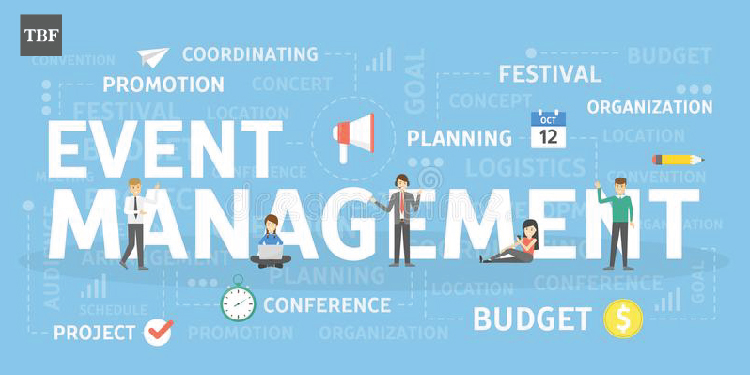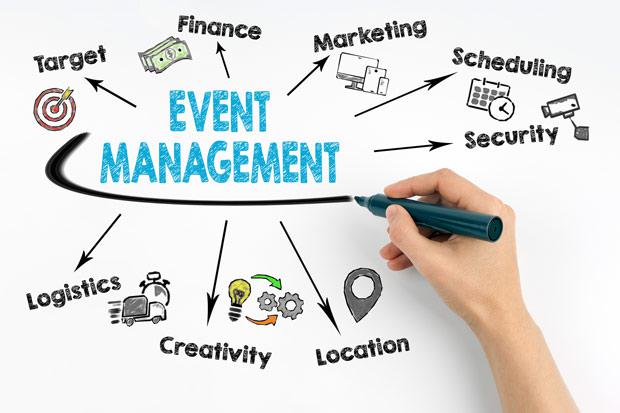Discover the Tricks to Effective Occasions Administration Through Comprehensive Providers Supplied
Effective events management requires a calculated approach. It involves recognizing event goals, picking the best venue, and efficient budgeting. Additionally, reliable advertising and marketing and smooth logistics play essential duties. Engaging participants with interactive experiences can boost the general impact. Evaluating success and Event responses is equally important. Each facet interconnects to develop remarkable occasions. What are the essential components that truly make an event stick out?
Recognizing Your Event Goals
Plainly defining event objectives is vital for effective event monitoring. Establishing clear goals provides a framework for all preparing tasks and decision-making processes. Occasion coordinators need to recognize the objective of the event, whether it is to inform, celebrate, or promote a product and services. This understanding forms every aspect, from the target audience to the budget plan allocation.
Additionally, details objectives assist in effective communication amongst stakeholders, ensuring that everybody is lined up in the direction of a common vision. By articulating quantifiable outcomes, coordinators can examine success post-event, permitting regular enhancement. A well-defined unbiased aids in prioritizing resources and tasks, streamlining initiatives in the direction of accomplishing preferred results. In general, understanding occasion purposes is not just a rule; it is a fundamental component that drives the success of any kind of event, greatly influencing its total effect and efficiency.
Choosing the Right Venue for Your Event
Selecting the suitable venue is vital for an event's success. Trick variables to consider consist of the place's capability to accommodate visitors, its ease of access for attendees, and the overall atmosphere that straightens with the event's motif. By carefully assessing these elements, occasion coordinators can create a remarkable experience that fulfills their objectives.
Assessing Venue Ability Demands
Choosing the proper place for an event hinges on a complete analysis of ability needs. Event coordinators have to first establish the expected number of guests, as this substantially influences venue option. A venue that is as well small can result in overcrowding, while one that is exceedingly large might reduce the event's atmosphere. Planners ought to also take into consideration the kind of event, as different celebrations call for various spatial plans, such as classroom, banquet, or movie theater arrangements. Furthermore, it is necessary to represent additional area for hosting, audio-visual equipment, and providing services. By evaluating these aspects, event managers can assure that the picked venue not only suits guests comfortably but additionally enhances the total experience for everyone entailed.
Area Access and Logistics
While the venue's capacity plays an essential function in occasion planning, its accessibility and logistics are similarly vital for ensuring an effective event. A well-chosen area ought to be quickly obtainable by different transportation methods, consisting of public transit, taxis, and auto parking centers. This access allows guests to get here without hassle, enhancing their general experience. Additionally, the place's design must assist in smooth movement, especially for those with wheelchair obstacles. Logistical considerations, such as establishing audio-visual equipment and event catering services, need to also be factored in to stay clear of interruptions. Ultimately, focusing on accessibility and logistics not only cultivates a welcoming atmosphere however likewise contributes substantially to the occasion's success and guests' satisfaction.
Ambiance and Visual Appeal
The setting and visual allure of a location play a pivotal duty in establishing the tone for an occasion, affecting participants' emotions and total experience. A well-chosen location enhances the thematic elements of the event, whether it's a company celebration, wedding event, or social party. Factors such as design, decoration, and lighting contribute considerably to producing an inviting environment. A historical building might evoke nostalgia, while a contemporary area can motivate innovation. Additionally, the venue's surroundings, including sights and exterior spaces, can better elevate the experience. Eventually, choosing a venue that lines up with the event's goals and desired mood is vital for successful events administration, ensuring that guests entrust lasting perceptions and memories.
:max_bytes(150000):strip_icc()/event-management-vs-event-planning-whats-the-difference-4022871-v3-5be9a8e146e0fb0051db23eb.png)
Budgeting: Allocating Resources Effectively
Reliable budgeting is crucial for effective occasion management, as it assures that sources are designated in a way that maximizes influence while decreasing waste. Establishing a complete budget entails determining all possible prices-- place, wedding catering, entertainment, and logistics-- to create a reasonable financial framework. By reviewing the concerns and objectives of the event, managers can designate funds successfully, guaranteeing vital facets receive adequate investment.
Normal tracking of expenses throughout the planning process is essential to stay within spending plan and make necessary adjustments. Using tools such as spread sheets or budgeting software application can improve this procedure, enabling real-time monitoring and projecting. Furthermore, participating in settlements with vendors can bring about set you back financial savings without endangering high quality. Ultimately, efficient source allocation with meticulous budgeting contributes to the general success of an occasion, producing unforgettable experiences while adhering to monetary restrictions.

Advertising Your Occasion Efficiently
Efficient advertising is crucial for the success of any kind of event, starting with the identification of the target market. Using social networks systems enables broader reach and involvement, while producing engaging content catches interest and urges engagement. With each other, these strategies form a foundation for impactful event promo.
Target Audience Recognition

Social Media Promotion
Social media serves as an effective device for occasion promotion, enabling coordinators to reach a vast audience with marginal expense. By leveraging platforms such as Facebook, Twitter, Instagram, and LinkedIn, event managers can develop targeted projects that link with potential guests. These platforms enable the sharing of occasion information, updates, and engaging visuals, which can substantially enhance exposure. Hashtags and collaborations with influencers additionally boost outreach initiatives, drawing in varied demographics. Furthermore, social media sites facilitates real-time interaction, allowing coordinators to react More Help to inquiries and responses without delay. This instant engagement cultivates a feeling of community and anticipation bordering the event, ultimately adding to higher attendance prices and a successful event management technique.
Engaging Material Production
Developing engaging material is essential for marketing an event properly, as it captivates the target market and encourages participation. Quality web content can take numerous types, including blog site posts, videos, infographics, and social media updates. Each piece must communicate the occasion's value, highlighting crucial speakers, tasks, and one-of-a-kind experiences. Uniformity across systems enhances brand acknowledgment and cultivates audience trust.
In addition, integrating storytelling techniques can stimulate emotions, making the occasion extra relatable and attractive. Using clear phone call to action triggers possible participants to sign up or share details with others. Additionally, leveraging user-generated web content, such as testimonies or images from previous events, can improve credibility and develop a feeling of area. Inevitably, involving web content is a keystone of effective event marketing methods.
Logistics: Making Sure Smooth Procedures
Logistics is the backbone of effective event management, guaranteeing that every detail lines up effortlessly to develop a memorable experience. This necessary facet incorporates numerous elements, consisting of venue selection, transportation, devices procurement, and on-site sychronisation. Effective logistics preparing starts long prior to the occasion day, requiring precise scheduling and resource allocation.
An efficient logistical framework helps with smooth interaction among vendors, personnel, and attendees, reducing prospective disruptions. This consists of handling timelines for configuration, making certain that audiovisual equipment is practical, and collaborating providing solutions. Furthermore, backup strategies ought to be in location to resolve unforeseen conditions, such as severe climate or technological failures.
Engaging Attendees Via Interactive Experiences
How can event coordinators change a traditional Event right into an unforgettable experience? By incorporating interactive aspects that engage participants on numerous degrees. This may consist of hands-on workshops, live demos, or immersive innovation such as digital truth. These activities not only stimulate interest however additionally foster networking chances among individuals.
Coordinators can make use of gamification strategies, where guests compete in challenges or tests related to the occasion's style. Such activities improve interaction and make the experience much more remarkable. In addition, including target market response systems permits real-time feedback and communication, which can make individuals really feel a lot more purchased the event.
Creating spaces for informal discussions, such as lounges or breakout spaces, even more motivates interaction. By focusing on these interactive experiences, event organizers can grow a vibrant atmosphere, making certain participants leave with lasting impacts and beneficial connections, inevitably elevating the total success of the occasion.
Evaluating Occasion Success and Event Feedback
After fostering an interesting atmosphere with interactive experiences, evaluating the occasion's success becomes essential. This procedure entails collecting qualitative and quantitative data to evaluate participant satisfaction and overall impact. Studies and responses kinds are important devices, permitting individuals to express their opinions on various facets, such as material importance, audio speaker performance, and logistical arrangements.

Assessing presence metrics, engagement degrees, and social media sites interactions likewise offers essential insights. This data makes it possible for event planners to recognize staminas and weak points, assisting in educated decisions for future events. Furthermore, follow-up interviews with key stakeholders can reveal much deeper point of views on the event's efficiency.
Inevitably, collecting responses not just determines success but likewise grows a society of continual renovation. By prioritizing assessment, occasion managers can improve their approaches, ensuring that each Event exceeds or satisfies individual expectations while achieving business objectives. This commitment to representation strengthens the foundation for future effective occasions.
Regularly Asked Concerns
What Are the Vital Abilities for an Occasion Supervisor?
Vital abilities for an event manager include solid interaction, business abilities, problem-solving ability, time administration, imagination, budgeting expertise, management top qualities, and flexibility - Charlotte Event Companies. These abilities make it possible for effective control and implementation of successful occasions throughout numerous settings
Just How Can Innovation Enhance Event Management Provider?
Technology improves occasion administration services by simplifying preparation procedures, helping with communication, automating jobs, and supplying information analytics. These developments allow occasion managers to improve efficiency, involve participants, and develop individualized experiences, inevitably bring about successful events.
What Licenses or Licenses Are Usually Needed for Occasions?
Typically, events call for authorizations such as public assembly, alcohol licenses, health and wellness permits, and noise licenses. Needs vary by location, event kind, and dimension, demanding careful planning to assure compliance with local guidelines.
How Do You Take Care Of Unanticipated Difficulties Throughout an Event?
To take care of unanticipated obstacles during an occasion, efficient planners preserve versatility, interact promptly with groups, and devise backup plans - Charlotte Event Companies. Quick analytic and flexibility guarantee that disruptions are handled successfully, minimizing influence on the occasion's success
What Are the Ideal Practices for Post-Event Follow-Up?
Post-event follow-up best practices consist of sending thank-you check my site notes, gathering feedback through studies, examining event success metrics, and sharing highlights on social media. This approach fosters partnerships and help in the preparation of future occasions.
Plainly specifying event objectives is necessary for successful occasion management (Charlotte Event Companies). Event coordinators should identify the function of the occasion, whether it is to educate, commemorate, or promote an item or solution. Event planners have to first establish the anticipated number of participants, as this considerably affects location choice. Including storytelling methods can evoke feelings, making the occasion extra relatable and appealing. Normally, occasions require licenses such as public assembly, alcohol licenses, health and wellness and safety permits, and noise webpage permits